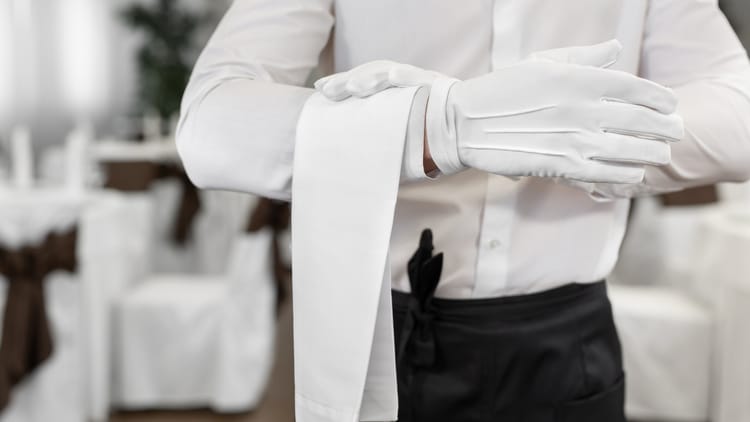Toolkit for Living: Investing (Luke 12:13-34)

The past few weeks, we’ve been looking at some tools that are rare but critical for living faithfully. These are tools that you won’t find in common use anywhere. They were tools used by our Master, Jesus, and we’re trying to rediscover them as tools of spiritual formation for our own lives.
The first tool we looked at was slowing. Busyness robs relationships, including our relationship with God. Slowing allows us to hear God’s voice, and to get on God’s agenda instead of our own agenda. I hope you’ve been able to use this tool. Life gets out of control very quickly without it.
Then, two weeks ago, we looked at the second tool: tuning. We talked about reducing the noise, ignoring the expectations, and learning from Jesus. We talked about the one-dish rule: never make ten dishes when only one will do. I hope you’ve slowed enough to have some time to find a tuning practice that works for you.
Today I’d like to look at a third tool that’s commonly used, but this one has a twist. It’s the tool of investing. This tool is found everywhere. You can hire investment advisors, find books and websites on investing. You may have heard of recent books like The Automatic Millionaire. Investing isn’t a new tool, but Jesus turns the tool on its head. The investing tool is common, but Jesus calls us to use the tool in a completely different way than is commonly practiced.
The Problem: Greed
If you have a Bible, let’s look at a story Jesus told in Luke 12. It’s a story that’s familiar to many of us. Let’s read the story, starting in verse 13.
Then someone called from the crowd, “Teacher, please tell my brother to divide our father’s estate with me.”
Jesus replied, “Friend, who made me a judge over you to decide such things as that?” Then he said, “Beware! Don’t be greedy for what you don’t have. Real life is not measured by how much we own.”
And he gave an illustration: “A rich man had a fertile farm that produced fine crops. In fact, his barns were full to overflowing. So he said, ‘I know! I’ll tear down my barns and build bigger ones. Then I’ll have room enough to store everything. And I’ll sit back and say to myself, My friend, you have enough stored away for years to come. Now take it easy! Eat, drink, and be merry!’
“But God said to him, ‘You fool! You will die this very night. Then who will get it all?’
“Yes, a person is a fool to store up earthly wealth but not have a rich relationship with God.” (Luke 12:13-21)
“Then someone called out from the crowd.” This wouldn’t have been too much of a surprise. Jesus was a rabbi, and he traveled from town to town. Rabbis at that time were often asked to mediate disputes such as this one. Only this time, Jesus wasn’t asked to mediate; he was asked to take sides.
The guy asked, “Please tell my brother to divide our father’s estate with me” (Luke 12:13). This wasn’t too surprising either. If you’ve been part of settling an estate, you know that family tensions can arise. If you’ve settled an estate without arguments or tensions, then you are blessed. I’ve been with families that started arguing about the estate at the graveside service.
For a Jewish person living back then, inheritance was extremely important. The firstborn son would get a double share. Inheritance and land rights in that day were very important. Nobody would think twice about this request. The man who asked Jesus to step in was a little bold. He wasn’t asking Jesus to mediate; he was asking Jesus to take his side. There was nothing out of the ordinary about this question. Nobody would have been shocked. He wasn’t out of line.
It’s interesting how Jesus responded: “Friend, who made me a judge over you to decide such things as that…Beware! Don’t be greedy for what you don’t have. Real life is not measured by how much we own” (Luke 12:14). Jesus sees a problem in this man’s request. Jesus identifies the man’s problem. He thinks his problem is that he and his brother are disputing their father’s estate. That’s not the real problem. The real problem can be summarized by one word: greed. Jesus’ warning about greed is a tip-off on the theme of this passage. Greed is something that is dangerous. We don’t even recognize greed a lot of the time. Greed is something we need to watch out for.
There are lots of financial questions that we could ask today that would be similar to this man’s. They aren’t bad questions in themselves. They certainly don’t look bad; they’re culturally acceptable. Where should I invest for retirement? Should I pay down the mortgage or invest? How can we prepare our estate to minimize tax? What should we do with a windfall? Jesus points us to look beyond these questions to a more important question: are we guilty of greed? To answer this question, let’s look at how Jesus explained what greed is.
Greed Defined
Jesus told a story that illustrates the problem a lot of us have with money. Verses 16-21 say:
A rich man had a fertile farm that produced fine crops. In fact, his barns were full to overflowing. So he said, “I know! I’ll tear down my barns and build bigger ones. Then I’ll have room enough to store everything. And I’ll sit back and say to myself, My friend, you have enough stored away for years to come. Now take it easy! Eat, drink, and be merry!”
But God said to him, ‘You fool! You will die this very night. Then who will get it all?’
Yes, a person is a fool to store up earthly wealth but not have a rich relationship with God.
Here we have a man who had a good year. He wasn’t necessarily rich. All we know about this man is that he did particularly well with at least one crop. He faced the same decision that all of us have experienced when we run into a little extra money. What do we do with it? When we get a raise or a bonus, or someone dies and leaves us an inheritance, what do we do with the money?
He looks at his windfall and decides to build bigger barns. He then decides to go into early retirement and to live off of what he has accumulated. To put it into modern terms, he does well enough that he can save and live off the investments. He doesn’t go crazy with the money. Nobody would say that he is acting irresponsibly. He just decides to enjoy what God has given him. There aren’t many people who would criticize him for what he decided to do.
At first, when you read this story, it really looks like Jesus is being harsh. What is this guy supposed to do?
We get a clue as we read the details of this story a bit closer. Five times, in verses 17 to 19, this man speaks about what he will do with his stuff as if it is his own. Here’s his mistake: it’s not that he made a lot of money. This man’s mistake is that he viewed what he had as his own. He thought he could do whatever he wanted with his own stuff.
This is the essence of greed: KEEPING the resources God has given you for YOURSELF. It’s thinking that our income is our own. It’s thinking that our stuff is our stuff.
Where do I get this from? This man’s behavior is contrasted with a different lifestyle later on in the passage. In verses 33 and 34, Jesus says:
Sell what you have and give to those in need. This will store up treasure for you in heaven! And the purses of heaven have no holes in them. Your treasure will be safe-no thief can steal it and no moth can destroy it. Wherever your treasure is, there your heart and thoughts will also be.
So here you have two lifestyles. One lifestyle is keeping what we have and using it for ourselves. The other lifestyle is to sell what we have and use it for the benefit of others. The first lifestyle is called foolish and greedy. The second one earns us treasure in heaven that can’t be taken away. It also orients our hearts in the right direction. One is about being materially rich; the other is about being rich with God. Greed is keeping what we have for ourselves. Giving is about using what we have and for God and for others.
This is the essence of investing: GIVING the resources God has given you for OTHERS; responding to life and blessing in a way that honors God through service and compassion. The number one financial mistake we can make is to think that we own it all. The smartest financial decision we can make is to recognize that everything that we have is God’s, and therefore we can use everything we have for his purposes and the benefit of others.
Steps to Investing
This is so completely different to the way we live that it’s hard to even imagine living this way. We’re so used to thinking that our stuff is ours that it’s hard to even think of what it would look like to live differently. What is the alternative? Selling everything that we have and living like paupers? Actually, no. The alternative is described in three steps found in this passage.
1. Detachment
Verses 22 and 23 say, “So I tell you, don’t worry about every day life-whether you have enough food to eat or clothes to wear. For life consists of far more than food and clothing.” This is where it all starts. It’s also where a lot of us get stuck. Jesus calls us to realize that our stuff is just stuff. It’s not worth worrying about. It’s not worth hording. Life is about much more than the stuff we have. When we understand this, it won’t be a big deal to move to the next step. Living a life of generosity begins with detachment from the stuff that we have.
If you’ve stayed in a nice hotel room, you know that it’s easy to feel at home. I’ve stayed at the Royal York a few times. It’s very nice. Imagine if you went out shopping and picked up a new floral arrangement for the room. Then you went to a furniture store and ordered a new sofa for the room. You kept on buying stuff for the hotel room because you felt so at home there. Then you went to the front desk and turned in your key and checked out. It would be insane to invest all of that money in your temporary dwelling when you will only be checking out after a short while. Yet that is exactly how a lot of us live. We feel at home here, so we keep picking up stuff. But this is not our permanent dwelling. We are not going to be here long. Why invest so much here when we’re going to be checking out very soon?
A man died and met St. Peter in Heaven. I know; you’ve heard this one before. I hate them too. The man arrived with a suitcase. Peter said, “We can’t let you bring anything in here.” The man said, “You don’t understand; I’ve made special arrangements with God. He said I could bring a suitcase of anything I wanted here.”
Peter checked, and surprisingly, the man was right. “This is highly unusual. Do you mind if I have a look?” The man agreed, and Peter looked into the suitcase. It was full of gold. Peter said, “Now why would you bring pavement to heaven?”
Stuff has no value in heaven. We are here only for a short time; it doesn’t make sense to accumulate stuff when we’re checking out soon. We can’t take it with us, because it has no value in heaven. It makes sense to be detached from what we own or could own. People and needs always take priority over possessions and ownership.
2. Trust
If we’re going to be detached from our stuff, it’s going to require trust in God. You can’t start letting go of your resources unless you have a quiet confidence that God is going to look after you. That is why Jesus continues by talking about the issue of trust. We can detach ourselves from our resources because God will look after us.
As an example, Jesus talks about ravens. “Look at the ravens. They don’t need to plant or harvest or put food in barns because God feeds them. And you are far more valuable to him than any birds!” (Luke 12:24) Ravens were worthless in that culture. They couldn’t be eaten. They were unclean. People considered them to be careless creatures that failed to even return to their own nests. Jesus says that God cares for even them. If God cares for the most worthless bird, God will look after those who trust him. If God cares for the little things, surely he will care for the more important things as well. Don’t be anxious. God looks after those who are detached from stuff and who trust in him.
This is important. You can’t live a life of obedience without trust in God. When you trust, you put everything on the line. The Christian life is not one of comfort, but of risk, exposure, weakness, and vulnerability.
3. Generosity
We start by being detached from our stuff. This requires trust. The end result, if we follow through, is that we become generous. Jesus says:
Sell what you have and give to those in need. This will store up treasure for you in heaven! And the purses of heaven have no holes in them. Your treasure will be safe-no thief can steal it and no moth can destroy it. Wherever your treasure is, there your heart and thoughts will also be. (Luke 12:33-34)
“Sell what you have and give to those in need.” This is a radical standard. There can’t be anything that we own that we’re not willing to get rid of to benefit the Kingdom or others. The minute we’re not willing to give up our stuff, then we are no longer the owners. It owns us.
Does this mean we can’t own anything? No, but it does call for a certain level of simplicity. It means that we go against the lifestyle of consumption and accumulation. It means that we travel light and refuse to get weighed down with stuff that we can’t use for Kingdom purposes.
Here’s the test: if you can use it for the Kingdom or to benefit others, then keep it and use it. If you can’t, sell it. Convert it to cash, because cash can be used to benefit the Kingdom and others. Only keep what you can use for the Kingdom. Get rid of everything else for the benefit of those in need.
This is not a command to make you destitute. It is a command to recognize that all of your possessions can be used for God’s purpose. Anything that can’t be used this way, you should sell instead.
There are only two types of owners: givers and hoarders. We’re called to be givers. We’re called to give it away instead of keeping it for ourselves.
Here is a fundamental test: how will you use your money and possessions? When you come into money, how will you see it? Do you see your stuff as your own, or do you see it as a tool of service to benefit others?
How much of your money is for you and your family? If you believed that God would look after you, what risks of generosity would you take?
To wrap this up, I’d like you to take the card you were given as you came in. I’d like you to write down which of the three steps is most challenging for you right now: detachment, trust, or generosity. Most of us are probably stuck at one of these three. Which one is the most challenging for you right now?
Then I’d like you to write down a step that will allow you to be obedient in that area. If you’re struggling with detachment, do something to give your stuff away. If it’s trust, take a big step that will demand a new level of trust in God to provide for you. If you are struggling with being generous, pick something big and give it away.
Write this down on the card and place it in the envelope. Seal it and write your name on the outside. We’re going to collect them. I promise that nobody will read them. We’re going to keep them and give them back to you in a few weeks as a reminder. I’ll give you a couple of minutes to write on the card.
Father, we like our stuff. We find it hard to invest in eternity because we’re too busy keeping out stuff for ourselves. Help us to see how foolish this is. Help us to become generous instead.
We want to invest. We want to be detached from our stuff, to live with such trust that we take huge risks of generosity. Whatever is keeping us from investing, deal with that in our lives. Help us to take the step we wrote down today. In Jesus’ name, Amen.





